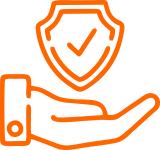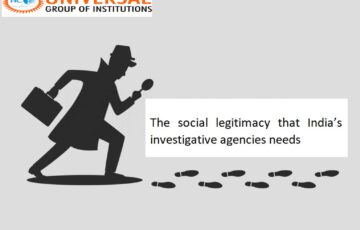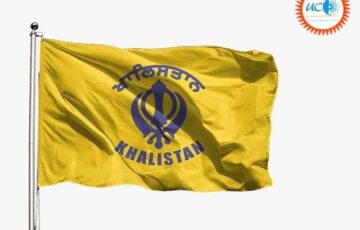Q. Discuss the role played by the International Atomic Energy Agency (IAEA) in the field of nuclear safety.
Approach:
- Give a brief introduction about the International Atomic Energy Agency (IAEA).
- State the role played by it in the field of nuclear safety.
- Mention the drawbacks of the organization.
- Conclude appropriately,
Answer:
Nuclear technology is dual use in its essence i.e. it can be used for the production of electricity or medical isotopes, and also serve as a source of fissile material for nuclear weapons. Therefore, any civil cooperation in the field of nuclear energy, especially uranium enrichment and reprocessing of plutonium, increases the risk of proliferation and militarization of nuclear installations and spent fuel.
In this context, a global central inter-governmental forum i.e. the International Atomic Energy Agency (IAEA) was established in 1957 for the safe, secure and peaceful use of nuclear science and technology. It is an autonomous organization within the United Nations system.
It operates in four major areas, which include
- Nuclear safety: It responds to nuclear emergency situations, and facilitates safeguarding and control of nuclear facilities.
- Nuclear security: It includes physical protection of nuclear materials and activities aimed at safe trading and prevention of smuggling.
- Nuclear safeguards and verification: It includes verification controls, ensuring supplies and internationalization of the fuel cycle.
- Promotion of peaceful use of nuclear energy: It refers to technical and scientific cooperation with respect to use of nuclear energy.
Despite its significance, several drawbacks have been observed in the functioning of the IAEA
- Four countries with nuclear weapons i.e. India, Pakistan, Israel and North Korea are not party to the NPT. Surprise nuclear tests conducted by some of these countries questions the safeguard mechanism of the IAEA.
- It has been observed that the IAEA is not able to detect secret facilities or installations and has no authority to make control inspection at any installation and at any time without prior notice. For instance, it was not able to identify the nuclear weapon construction program of Iraq.
- Consent of the member state is required for inspection by the IAEA. For instance, a delay of two decades was observed in inspecting the nuclear facilities of Iran.
- The IAEA has no enforcement power and its authority is limited to verifying that a state is carrying out its safeguards obligation. It also has no means of physically preventing a state from breaching its safeguards agreements or of compelling it to comply with any directive issued by the Board of Governors.
- Member governments decide upon the level of the IAEA’s budget for all its operations on the basis of proposals made each year by the IAEA Secretariat. However, the verification program of the organization remains chronologically underfunded, resulting in excessive reliance on extra- budgetary resources.
With the advancement in technology and rising need of energy, several countries including the UAE, Jordan, and Saudi Arabia are trying to establish their own civilian nuclear program and countries like Brazil, India, South Africa, and China are demanding international cooperation in peaceful use of dual technologies. Considering these demands, there is a need to increase the budget of the IAEA and enhance its authority through adequate reforms.






